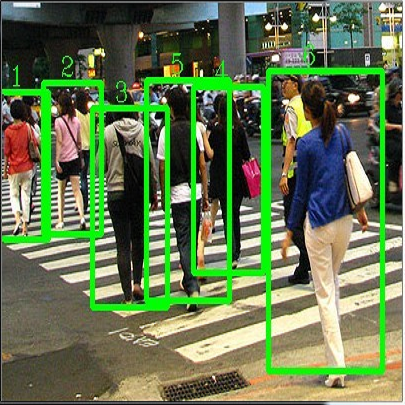Today very few deep learning-based mobile augmented reality (MAR) applications are applied in mobile devices because they are significantly energy-guzzling. In this paper, we design an edge-based energy-aware MAR system that enables MAR devices to dynamically change their configurations, such as CPU frequency, computation model size, and image offloading frequency based on user preferences, camera sampling rates, and available radio resources. Our proposed dynamic MAR configuration adaptations can minimize the per frame energy consumption of multiple MAR clients without degrading their preferred MAR performance metrics, such as latency and detection accuracy. To thoroughly analyze the interactions among MAR configurations, user preferences, camera sampling rate, and energy consumption, we propose, to the best of our knowledge, the first comprehensive analytical energy model for MAR devices. Based on the proposed analytical model, we design a LEAF optimization algorithm to guide the MAR configuration adaptation and server radio resource allocation. An image offloading frequency orchestrator, coordinating with the LEAF, is developed to adaptively regulate the edge-based object detection invocations and to further improve the energy efficiency of MAR devices. Extensive evaluations are conducted to validate the performance of the proposed analytical model and algorithms.
翻译:今天,很少有基于深层次学习的移动式增强现实(MAR)应用在移动设备中,因为这些应用具有显著的能量混杂性。在本文中,我们设计了一个基于边缘的能觉MAR系统,使MAR设备能够根据用户喜好、相机取样率和现有无线电资源,动态的MAR配置调整能够最大限度地减少多个MAR客户的每个框架能量消耗,同时不降低他们喜欢的MAR性能指标,例如延缓度和探测精确度。为了深入分析MAR配置、用户偏好、相机取样率和能源消耗之间的相互作用,我们提议根据我们的知识,为MAR设备开发第一个全面能源分析模型。根据拟议的分析模型,我们设计了一个LEAF优化算法,以指导MAR配置的适应和服务器无线电资源分配。一个图像卸载频率调控器,与LEAF协调开发,以适应性地调节基于边缘的物体探测功能,并进一步提高MAR装置的能源效率。进行了广泛的评估,以验证拟议的分析和算法的运作情况。




